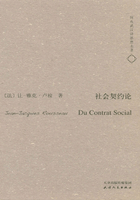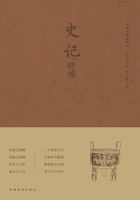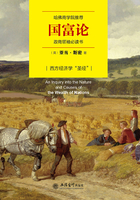The book /Augustinus/ created a profound sensation among theologians.
It was hailed as a marvel of learning and ability by those who were still attached secretly to the school of Baius as well as by the enemies of the Jesuits. A new edition appeared in Paris only to be condemned by the Holy Office (1641) and by Urban VIII. in the Bull, /In Eminenti/ (1642). Various difficulties were raised against the acceptance of the papal decision in Louvain and in the Netherlands, and it was only after a long delay and by threats of extreme measures that the Archbishop of Mechlin and those who followed him were obliged to submit (1653).
The real struggle regarding /Augustinus/ was to be waged, however, in Paris and France. There, the Abbot of St. Cyran had been busily at work preparing the way for Jansen's doctrine, by attacking the modern laxity of the Church, and advocating the necessity of a complete return to the rigorous discipline of the early centuries. He had made the acquaintance of the family of the celebrated lawyer, Antoine Arnauld, six of whose family had entered the convent of Port Royal, of which one of them, Angelique,[2] was then superioress, while his youngest son, Antoine, a pupil of St. Cyran, was destined to be the leader of the French Jansenists. St. Cyran insisted on such rigorous conditions for the worthy reception of the Eucharist, that people feared to receive Holy Communion lest they should be guilty of sacrilege, and for a similar reason many priests abstained from the celebration of Mass. He attacked the Jesuits for their laxity of doctrine and practice in regard to the Sacrament of Penance. He himself insisted on the absolute necessity of perfect contrition and complete satisfaction as an essential condition for absolution. These views were accepted by the nuns at Port Royal and by many clergy in Paris. On account of certain writings likely to lead to religious trouble St. Cyran was arrested by order of Cardinal Richelieu (1638)and died in 1643. His place was taken by his brilliant pupil, Antoine Arnauld, who had been ordained priest in 1641, and who like his master was the determined opponent of the Jesuits. In 1643 he published a book entitled /De la frequente Communion/, in which he put forward such strict theories about the conditions required for the worthy reception of the Eucharist that many people were frightened into abstaining even from fulfilling their Easter Communion. Despite the efforts of St. Vincent de Paul and others the book was read freely and produced widespread and alarming results.
The condemnation pronounced by Urban VIII. (1642) against /Augustinus/, though accepted by the king, the Archbishop of Paris, and the Sorbonne, found many staunch opponents. It was contended that the condemnation was the work of the Jesuits rather than of the Pope, that it was based on the groundless supposition that the system of Jansen was identical with that of Baius, and that as no individual proposition in /Augustinus/ had been condemned people were perfectly free to discuss the views it contained. To put an end to all possibility of misunderstanding Cornet, syndic of Paris University, selected from /Augustinus/ five propositions, which he believed contained the whole essence of Jansen's system, and submitted them to the Sorbonne for examination (1649). Owing to the intervention of the Parliament of Paris in favour of the Jansenists the propositions were referred to the Assembly of the Clergy (1650), but the vast body of the bishops considered that it was a question on which a decision should be sought from Rome. Accordingly eighty-five of the bishops addressed a petition to Innocent X. (1651) requesting him to pronounce a definitive sentence on the orthodoxy or unorthodoxy of the five propositions, while a minority of their body objected to such an appeal as an infringement of the liberties of the Gallican Church. Acommission, some of the members of which were recognised supporters of the Jansenists, was appointed by the Pope to examine the question, and after prolonged discussions extending over two years Innocent X.
issued the Bull, /Cum occasione/ (1653), by which the five propositions were condemned. The Bull was received so favourably by the king, the bishops, and the Sorbonne that it was hoped the end of the controversy was in sight.
The Jansenists, however, soon discovered a new method of evading the condemnation and of rendering the papal letters null and void. They admitted that the five propositions were justly censured, but they denied that these propositions were to be found in /Augustinus/, or, if they were in /Augustinus/, they contended they were there in a sense quite different from that which had been condemned by the Pope.















